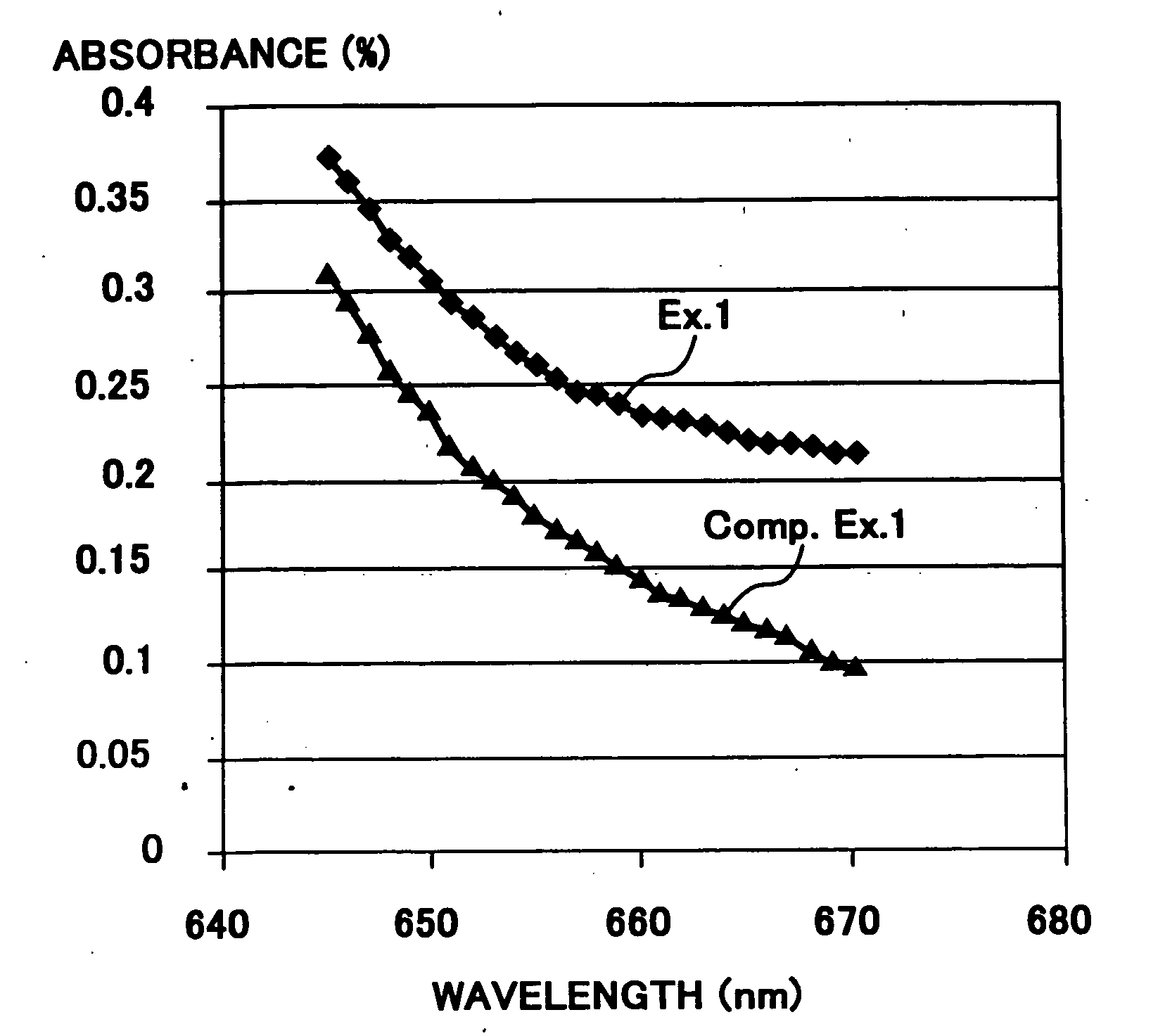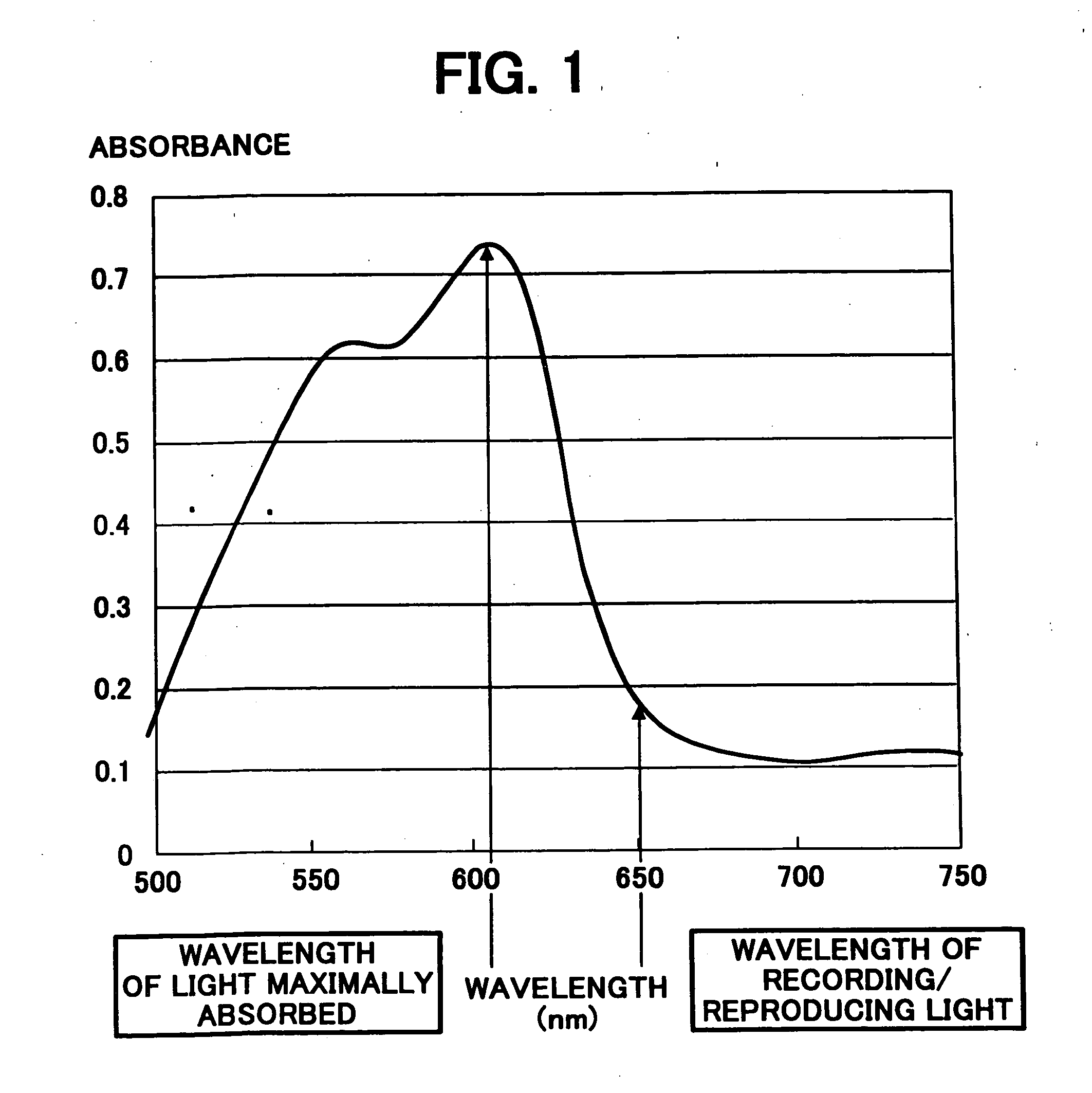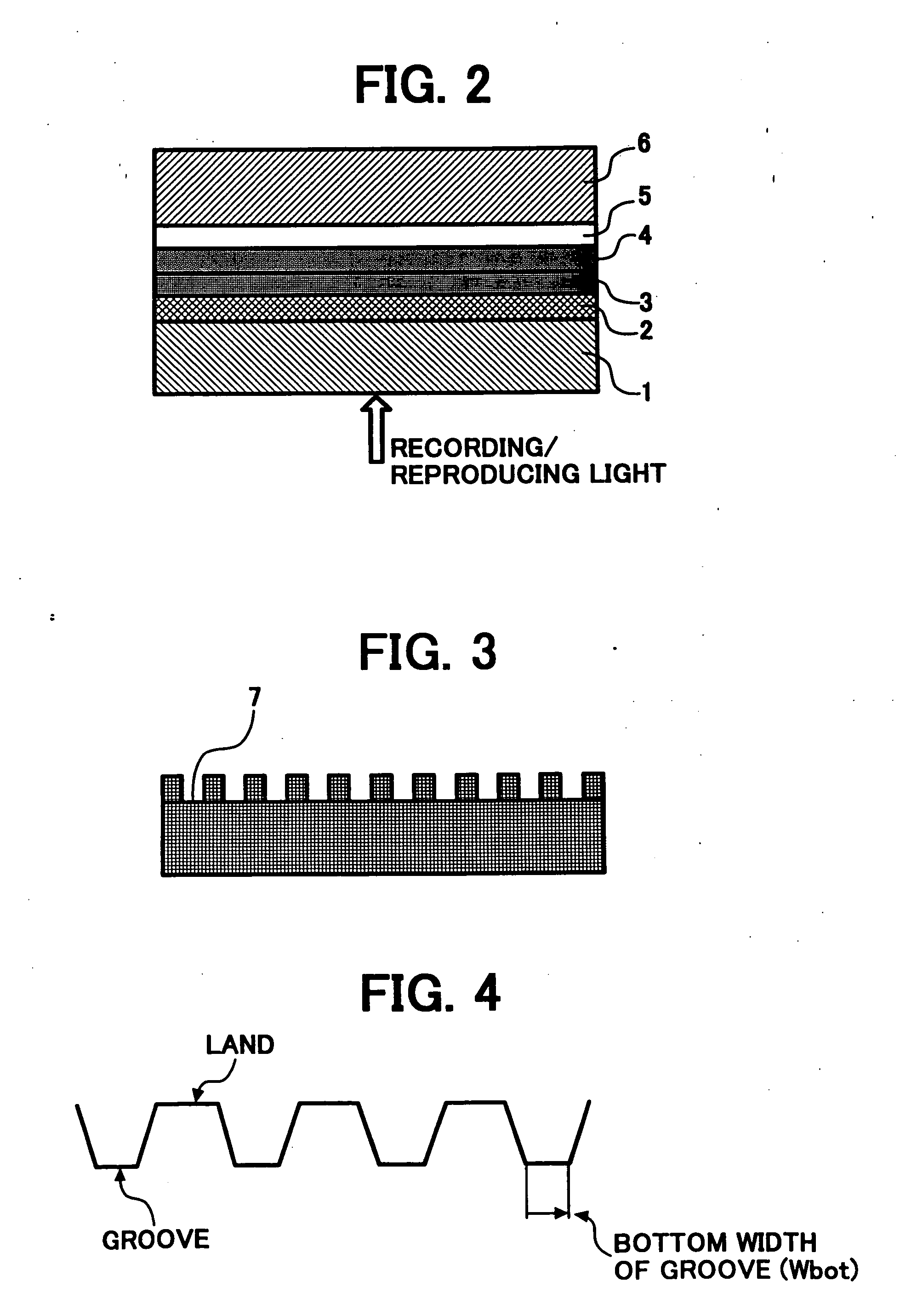Optical information recording medium
a technology of optical information and recording medium, which is applied in the field of optical information recording medium, can solve the problems of dyes having a drawback, dyes cannot have good recording/reproducing characteristics, and the complex index of refraction has a large wavelength dependency, and achieves the effect of small wavelength dependency and good recording characteristics
- Summary
- Abstract
- Description
- Claims
- Application Information
AI Technical Summary
Benefits of technology
Problems solved by technology
Method used
Image
Examples
example 1
[0161] The following components were dissolved in 2,2,3,3-tetrafluoropropanol to prepare a dye solution (i.e., a recording layer coating liquid).
Dye compound (α)Formazan Ni chelate compound (1)49 moleshaving formula (I)(I)
(Z: 3,6-phenoxytriazole, A: 2-trifluoromethylphenyl, B: phenyl, M: Ni, n = 2)
[0162]
Trimethinecyanine dye (2)49having fromula (III)moles(III)
(Q3 and Q4: a group forming a benzoindolenine ring together with a pyrrole ring, R3: —H, R4 and R5: —CH3, X−: −ClO4−)
[0163]
Dye compound (β)Pentamethinecyanine compound (11)2 moleshaving formula (VI)(VI)
(Q3 and Q4: a group forming a benzoindolenine ring together with a pyrrole ring, R3: —H, R4 and R5: —CH3, X−: —ClO4−)
[0164] The recording layer coating liquid was coated by a spin coating on a polycarbonate disc having a diameter of 120 mm and a thickness of 0.6 mm, on which a guide groove having a depth of about 1550 Å and a width of 0.24 ,μm was previously formed at a track pitch of 0.74 μm.
[0165] Thus, a recording layer ...
example 2
[0176] The procedures for preparation and evaluation of the recording medium in Example 1 were repeated except that the dye compounds (α) and (β) were replaced with the following dyes, respectively, and the solvent was replaced with a mixture solvent of tetrahydrofuran, 2-ethoxyethanol and
Dye compound (α)Tetraazaporphyradine compound (3)90 moleshaving formula (II)(II)
(M1: Cu, R1: —O—C(CF3)2—C5H6, R2: —H)
[0177]
Dye compound (β)Phthalocyanine compound (12)10 moleshaving formula (V)(V)
(M2: VO; Al, A3, A5, A7: —O—O—C(CF3)2—C5H6; A2, A4, A6, A8: —H)
[0178] Thus, an optical information recording medium was prepared.
[0179] The evaluation results are shown in Table 2. As can be understood from Table 2, the recording medium of Example 2 has good recording sensitivity.
example 3
[0180] The procedures for preparation and evaluation of the recording medium in Example 1 were repeated except that the Pentamethinecyanine compound (11) was replaced with a dye compound (13) having formula (V), and the molar ratio of the compounds (1), (2) and (13) was changed to 46:46:8.
(M2: Si(OCOC4H9)2; A1, A3, A5, A7: —O—CH2—CF2—CF2—CF3; A2, A4, A6, A8: —H)
[0181] The evaluation results are shown in Table 2. As can be understood from Table 2, the recording medium of Example 3 has good recording sensitivity.
PUM
| Property | Measurement | Unit |
|---|---|---|
| wavelength range | aaaaa | aaaaa |
| molar ratio | aaaaa | aaaaa |
| thermal decomposition temperatures Tαand Tβis | aaaaa | aaaaa |
Abstract
Description
Claims
Application Information
 Login to View More
Login to View More - R&D
- Intellectual Property
- Life Sciences
- Materials
- Tech Scout
- Unparalleled Data Quality
- Higher Quality Content
- 60% Fewer Hallucinations
Browse by: Latest US Patents, China's latest patents, Technical Efficacy Thesaurus, Application Domain, Technology Topic, Popular Technical Reports.
© 2025 PatSnap. All rights reserved.Legal|Privacy policy|Modern Slavery Act Transparency Statement|Sitemap|About US| Contact US: help@patsnap.com



